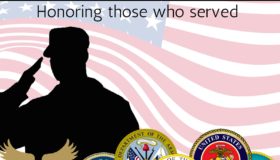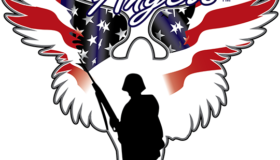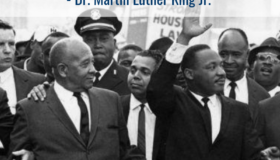POW/MIA Recognition Day: A Nation’s Promise That Never Fades
September 13, 2025
Every September, a solemn flame of remembrance is lit across our nation. It burns in the hearts of military families, Veterans, and patriots who pause to honor National POW/MIA Recognition Day—a day dedicated to those who endured the unimaginable as Prisoners of War and to those who never returned, still listed as Missing in Action.
This day is not just another date on the calendar. It’s a powerful reminder of America’s unshakable promise: You Are Not Forgotten!
The Weight of an Empty Chair
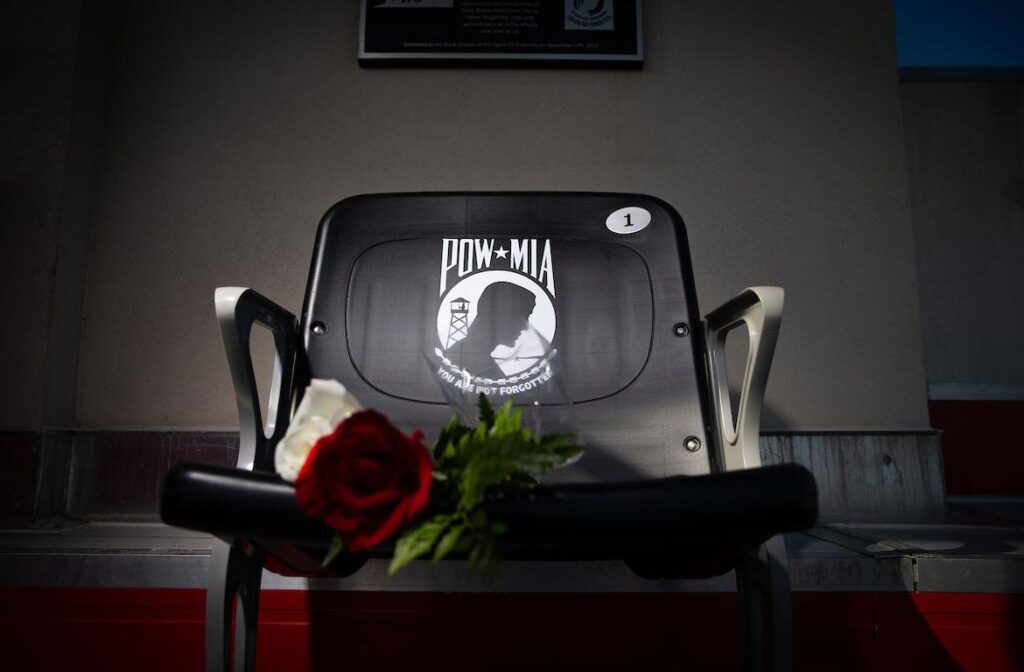
Think about the last family gathering you attended. Maybe it was a backyard cookout, a holiday dinner, or even just a quiet Sunday meal. Now, imagine one chair forever empty. The food is ready, the laughter is shared, but that seat remains untouched—a painful symbol of someone who never came home.
For the families of the missing, that empty chair is not just metaphorical. It is real. Every birthday, every holiday, every important day—celebrated with a shadow in the room. The ache never goes away, because closure never arrives.
That is why POW/MIA Recognition Day matters. It acknowledges not just the courage of those who served, but the relentless strength of families who keep the memory alive, year after year.
Symbols of Sacrifice: The Flag and the Missing Man Table
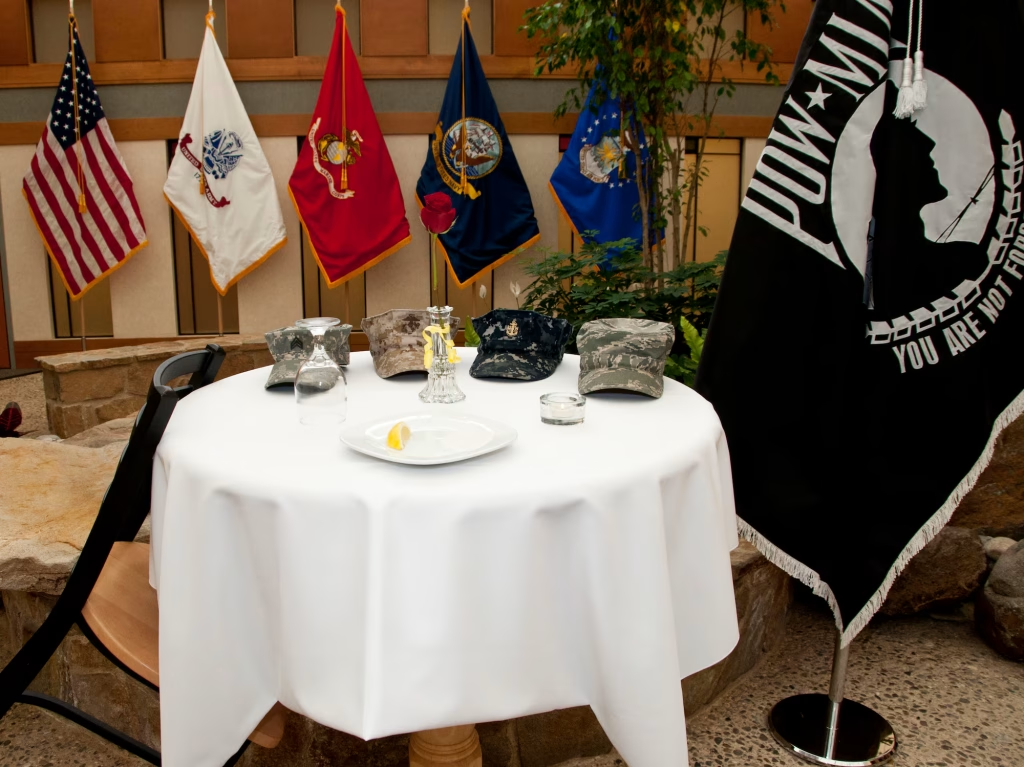
You’ve seen it flying high—the POW/MIA flag. Stark black and white, its silhouette of a soldier with barbed wire behind him, the haunting words “You Are Not Forgotten” below. This flag is more than fabric; it is a voice for the voiceless, reminding the world that America does not abandon her sons and daughters.
Equally powerful is the POW/MIA Missing Man Table, set in ceremonies across the country. Every element on that small round table tells a story of sacrifice: the white cloth for purity of service, a red rose for waiting families, a yellow ribbon for hope, lemon for the bitterness of fate, salt for the tears shed, and the empty chair for the one who is absent. Together, the flag and the table stand as symbols of remembrance, visible promises that America will never forget.
Stories of Endurance and Resilience
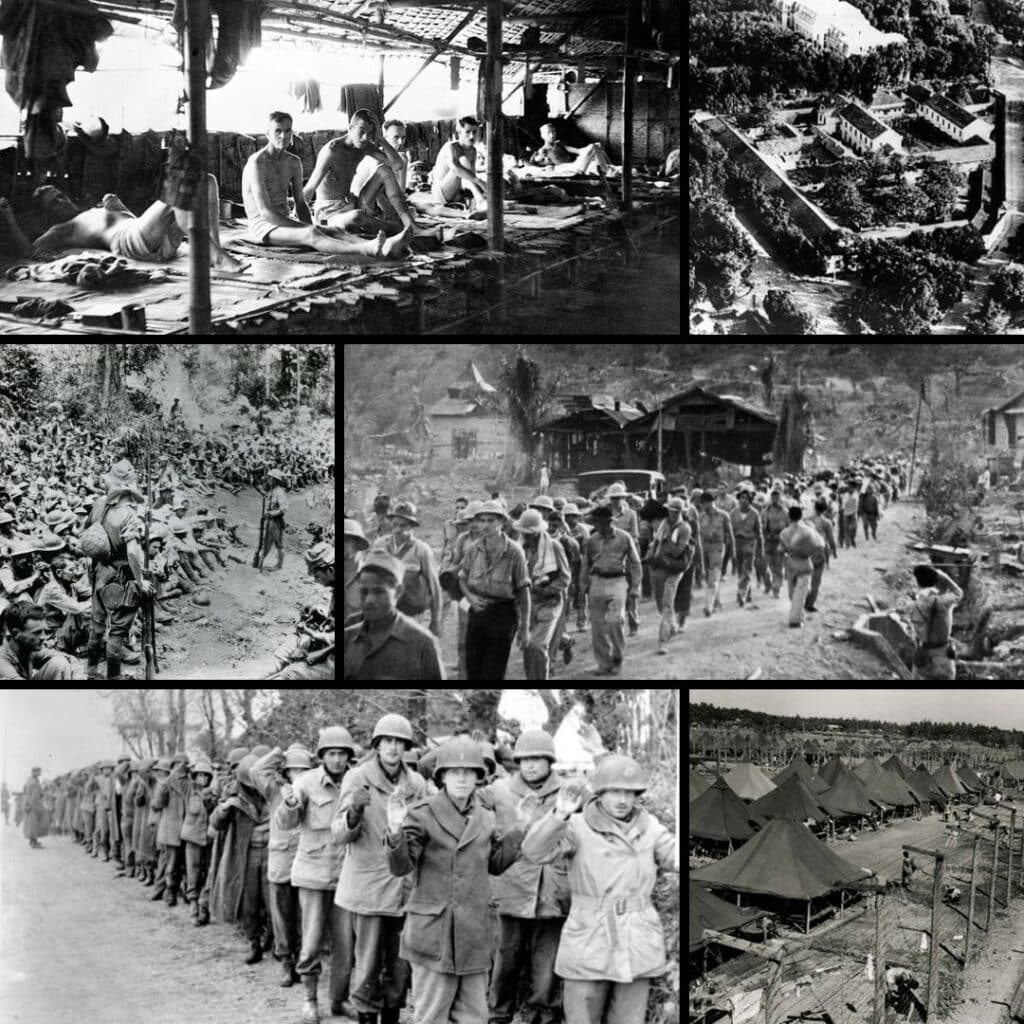
History has given us harrowing yet heroic stories of prisoners of war—stories that test the limits of human endurance.
In Vietnam, POWs endured years in the infamous “Hanoi Hilton,” secretly creating a tap code system to communicate, lifting each other’s spirits in the darkest conditions.
In World War II, prisoners marched through brutal conditions, starved, and suffered, but still clung to hope—protecting one another even at the cost of their own lives.
And then there are the stories we don’t know—the tens of thousands still missing from conflicts as far back as World War II. Each name represents a story left untold, a family left waiting, a legacy left unfinished.
A Place of Honor and a Nation’s Promise
To ensure these sacrifices are never forgotten, the National POW/MIA Memorial & Museum in Jacksonville, Florida, stands as a lasting tribute to all former Prisoners of War and those still Missing in Action. For families, it is a place of healing; for visitors, a place of connection and reflection.
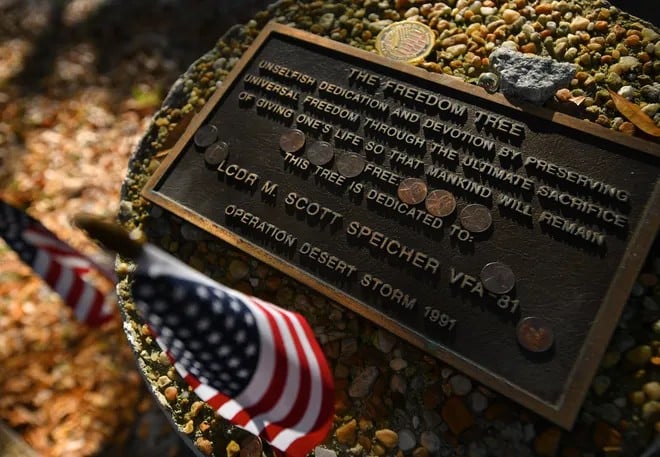
Adding to this legacy is the Freedom Trees grove, part of the museum’s Hero’s Walk. Each tree honors individual service members, with engraved markers displaying their name and rank. The trees symbolize resilience, courage, and the enduring spirit of freedom. Visitors pause beneath their shade, reflecting on the sacrifices of POWs, MIAs, and all who fought to protect liberty. Like the Missing Man Table or the black-and-white POW/MIA flag, the Freedom Trees remind us that freedom grows from the bravery of those who came before us—and that their legacy continues to flourish.
Beyond these memorials, the nation continues to fulfill its promise. The United States is one of the few countries in the world that makes the recovery and identification of its fallen a sacred duty. Teams of specialists search jungles, mountains, and oceans to recover remains from decades-old battlefields. Each time a missing service member is returned home, that promise echoes again: You are not forgotten.
Why POW/MIA Day Should Matter to Us All
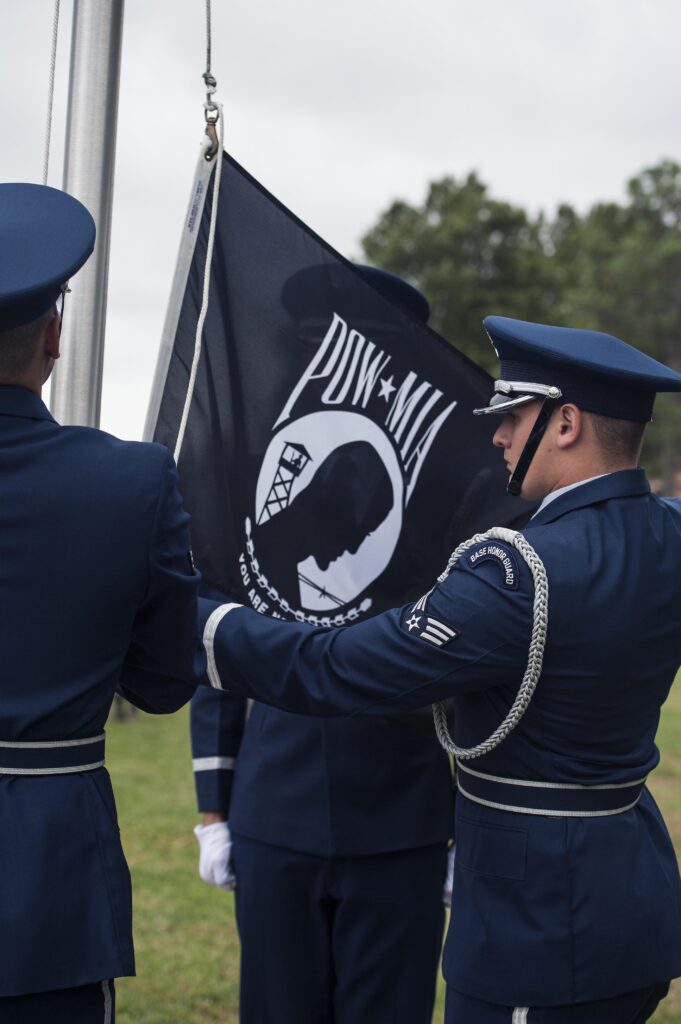
You might wonder—what can I, an ordinary American, really do? The answer is: a lot.
Remember – Speak about it. Teach it to your children. Share it with your community.
Honor – When you see the POW/MIA flag, pause for a moment and silently thank those who never came home.
Act – Attend a remembrance ceremony, visit the National POW/MIA Memorial & Museum, pause beneath the Freedom Trees, volunteer with a veterans’ organization, or support groups dedicated to recovering our missing heroes.
These actions, though small, ripple outward. They ensure the stories of POWs and MIAs live on, shaping the way future generations understand sacrifice.
Carrying the Torch Forward
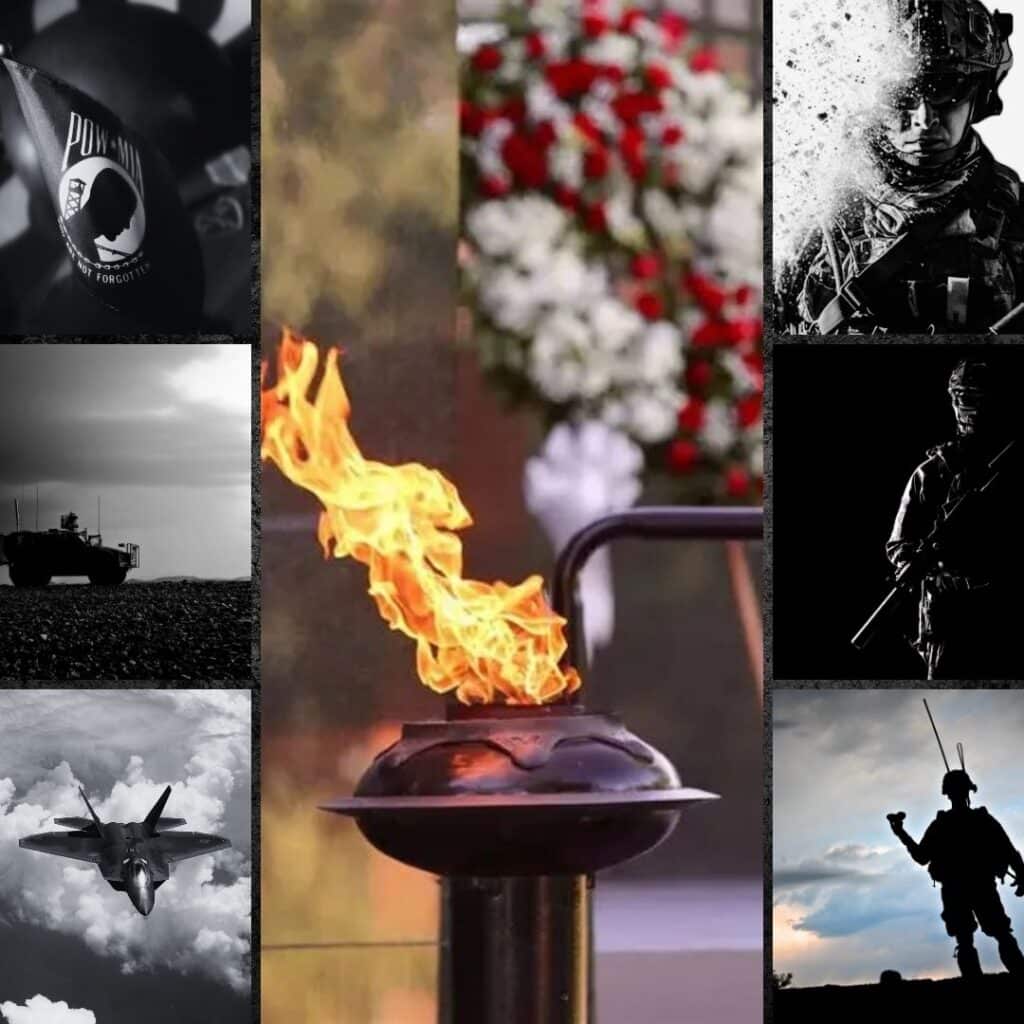
POW/MIA Recognition Day is not about looking back with sorrow—it’s about moving forward with strength. It’s about uniting as Americans under a single banner of loyalty and gratitude.
The men and women we honor were more than Airmen, Soldiers, Marines and Sailors. They were fathers, mothers, brothers, sisters, sons, and daughters. They laughed, they dreamed, they planned futures that were stolen by war. The best way we can honor them is to carry their stories forward, to ensure the next generation understands what their sacrifice means.
Tell your children about the black-and-white flag, about the Missing Man Table, about the National Memorial, and about the Freedom Trees. Tell them that America is a country that remembers, always.
Because memory becomes legacy. And legacy becomes the promise that binds us together as one nation.
A Promise Kept
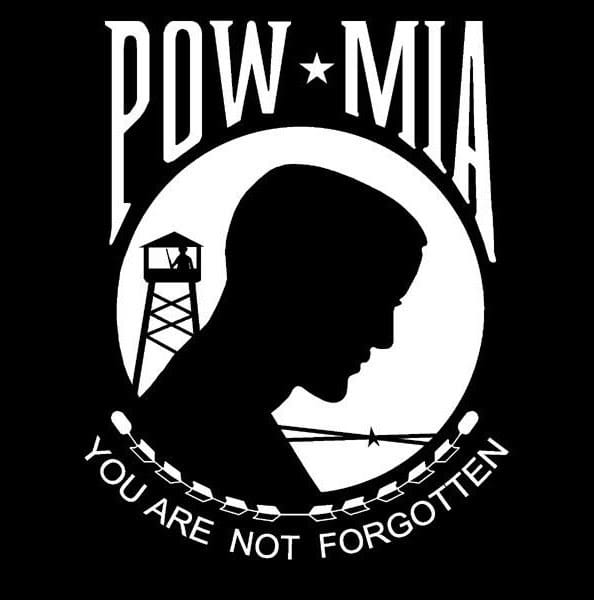
On National POW/MIA Recognition Day, we are reminded that freedom is not free, and neither is memory. Both require vigilance, sacrifice, and an unwavering commitment to never leave anyone behind.
So let’s honor the empty chairs. Let’s honor the families who wait. Let’s honor the flag, the Missing Man Table, the Memorial, the Freedom Trees, and everything they stand for.
Most importantly, let’s honor the men and women themselves—those who endured captivity, those who never came home, and those whose stories are still unfolding.
Because today, tomorrow, and forever—we promise: You are not forgotten.
About the Author

Mike Isaac-Jimenez is a 25-year U.S. Air Force Veteran based in San Antonio, TX. He currently serves as a Marketing and Communications Veteran intern with Soldiers’ Angels, where he shares his passion for storytelling with his dedication to honoring military service. Mike holds a B.S. in Technical Management (Project Management) from Embry-Riddle Aeronautical University, along with A.A.S. degrees in Mechanical & Electrical Technology and Mechanical Engineering. He writes to preserve the legacies of America’s heroes and honor those who served and are still serving.
